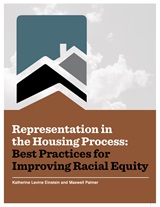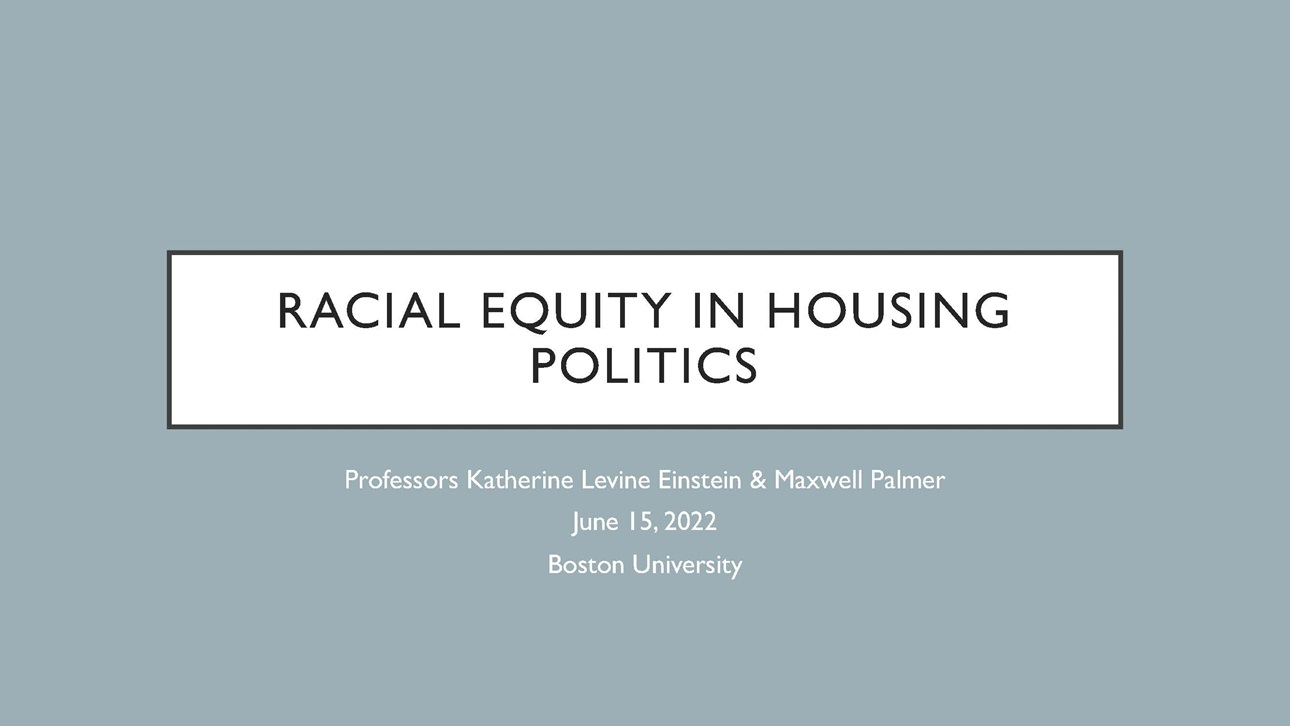Agenda
Welcome & Opening Remarks
Keith Mahoney, Vice President of Communications & Public Affairs, The Boston Foundation
Presentation of the Report
Katherine Levine Einstein, Associate Professor & Director of Undergraduate Studies, Dept. of Political Science, Boston University; Faculty Fellow, Initiative on Cities
Maxwell Palmer, Associate Professor. Dept. of Political Science, Boston University; Faculty Fellow, Initiative on Cities
Remarks on the MA Coalition for Racial Equity in Housing
Rachel Heller, CEO, Citizens’ Housing & Planning Association
Thea James, MD, Vice President of Mission & Associate Chief Medical Officer, Boston Medical Center; Associate Professor of Emergency Medicine, Boston University School of Medicine
Discussion & Audience Q&A
Soni Gupta, Senior Director of Neighborhoods & Housing, The Boston Foundation (Moderator)
David Harris, Former Managing Director (Retired), Charles Hamilton Houston Institute for Race and Justice
Nevena Pilipović-Wengler, Community Engagement Planner, Department of Planning and Development, City of Newton
Andres X. Vargas, State Representative, 3rd Essex District, Commonwealth of Massachusetts


